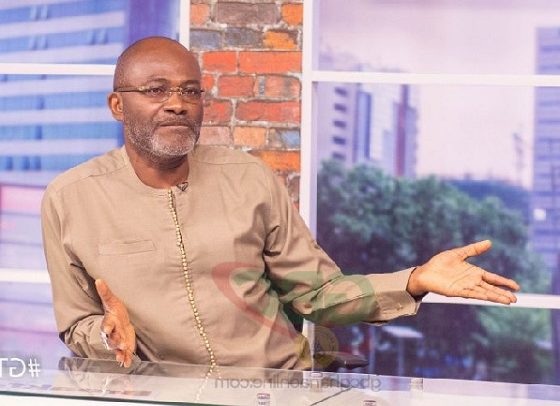In a fiery revelation, Kennedy Ohene Agyapong, the Member of Parliament for Assin Central in the Central Region, has vehemently expressed his bitterness towards some of his colleagues in the aftermath of the New Patriotic Party (NPP) presidential primary.
The Primary Faceoff and Consequent Discontent
During the NPP presidential primary held late last year, Vice-President Bawumia emerged victorious, obtaining 118,210 votes representing 61.47% of the total valid vote cast. Agyapong, his main contender, secured 71,996 votes, accounting for 37.41% of the votes cast.
Despite the outcome, it was not Dr. Bawumia’s victory that left Agyapong embittered.
Betrayal and Hurtful Remarks
In an exclusive, yet-to-be-aired interview with Kwaku Sintim-Misa on Pan African Television, Agyapong disclosed his deep-seated resentment, citing the treatment he received from colleagues during the contest.
He expressed his discontent not only with those who did not support his candidacy but primarily with former allies who resorted to derogatory remarks against him.
Agyapong remarked, “It is not every MP who didn’t vote for me that I’m angry at. No, everybody has a choice. But the very people who were my friends that I have helped to come to Parliament … It’s not the betrayal but the bad things they said about me, that is where I have the problem.”
Unveiling Frustrations and Unleashing Venom
The vocal MP did not mince his words as he highlighted his frustrations, underlying the pain caused by the insults and negativity hurled his way by individuals he had supported in their political journeys. Agyapong’s candid admission of bitterness reveals the depth of hurt and discord that followed the presidential primary, tarnishing relationships within the political sphere.
Navigating Political Fallout and Personal Disillusionment
Kennedy Agyapong’s outspoken criticism sheds light on the underlying tensions and rifts within the political landscape, showcasing the complexities and motivations that drive interactions among colleagues vying for influential positions.
His public revelation serves as a stark reminder of the repercussions of political competition and the lasting impact of personal betrayals in the pursuit of power.
As Agyapong’s revelations continue to reverberate, it remains to be seen how these grievances will shape the dynamics within the NPP and impact future collaborations and alliances among its members.
By Vincent Kubi


